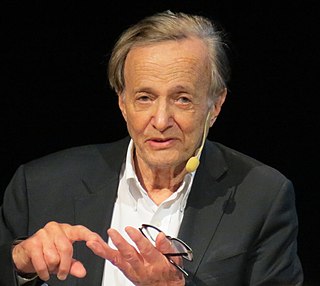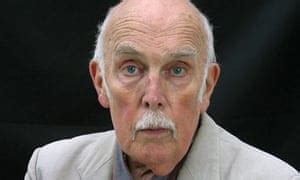A Quote by Edward Abbey
The ideal society can be described, quite simply, as that in which no man has the power of means to coerce others.
Related Quotes
There is a great difference, then, between "power" and "authority." Power refers to one's ability to coerce others (through physical, economic, or other means) to do one's bidding. One can possess the means of power: physical strength, armaments, and money. But authority must be performed. Authority refers to one's ability to gain the trust and willing obedience of others. While power rests on intimidation, authority survives through inspiration.
The terror in which English capitalists now stand of organized proletarian resistance gives to the naturally protected craft organizations the power to receive the wages they demand. They act as they have been trained to act by capitalist society, which denies the doctrine of the Just Price, which proclaims work to be an evil and the goal of human endeavor to be the avoidance of it; which puts it up as an ideal that individuals should get as much money as they possibly can out of their fellows by any means in their power.
Political freedom means the absence of coercion of a man by his fellow men. The fundamental threat to freedom is power to coerce, be it in the hands of a monarch, a dictator, an oligarchy, or a momentary majority. The preservation of freedom requires the elimination of such concentration of power to the fullest possible extent and the dispersal and distribution of whatever power cannot be eliminated — a system of checks and balances.
For loving, working, and creative people to throw off the yoke of power it is necessary to abolish power itself, not merely to make the yoke comfortable. Where some have power, others do not, and the two classes persist. A free society is where all have power-power over and responsibility for their own lives, power and reason to respect the lives of others. This is also a society without classes, a society of human beings, not rulers and the ruled.
Consider children as a beat. Clearly not an institution of power, children don't vote and they don't pass taxes. They have no money, and they don't buy newspapers or watch the news on television. Consequently, children are one of the most neglected segments of society in the news, except as a subtopic of other power beats such as education, family, and crime. Children are in serious trouble in this society, which means the foundation of our society is in trouble, which means the future is in trouble, and that is news.
Man cannot be exempted from his divinely-imposed obligations toward civil society, and the representatives of authority have the right to coerce him when he refuses without reason to do his duty. Society, on the other hand, cannot defraud man of his God-granted right... Nor can society systematically void these rights by making their use impossible.
During my lifetime I have dedicated myself to this struggle of the African people. I have fought against white domination, and I have fought against black domination. I have cherished the ideal of a democratic and free society in which all persons live together in harmony and with equal opportunities. It is an ideal which I hope to live for and to achieve. But if needs be, it is an ideal for which I am prepared to die.


































